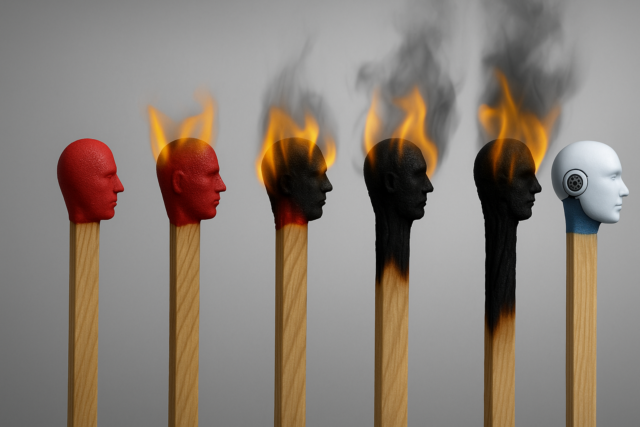AI can see how stressed you are

Researchers have developed an AI-driven way to spot a biological marker of chronic stress using routine CT imaging, offering a new view into how long-term stress affects the human body. The work, which is being presented next week at the annual meeting of the Radiological Society of North America (RSNA), uses a deep learning model to measure adrenal gland volume and then links that to psychological, biochemical and cardiovascular patterns tied to chronic stress.
Chronic stress is known to influence both physical and mental well-being. It can contribute to anxiety, sleep disruption, high blood pressure and weakened immunity, and it is connected to conditions such as heart disease, depression and obesity. Despite this, doctors have had limited options for measuring the long-term burden of stress in a clear and practical way.
SEE ALSO: Researchers say traditional blame models don't work when AI causes harm
The study’s lead author, Elena Ghotbi, M.D., a postdoctoral research fellow at Johns Hopkins University School of Medicine, developed a model that can calculate adrenal gland volume on existing chest CT scans. These scans are already performed in large numbers across hospitals, offering a wide pool of data.
AI-driven biomarker
"Our approach leverages widely available imaging data and opens the door to large-scale evaluations of the biological impact of chronic stress across a range of conditions using existing chest CT scans," Dr. Ghotbi said. "This AI-driven biomarker has the potential to enhance cardiovascular risk stratification and guide preventive care without additional testing or radiation."
Senior author Shadpour Demehri, M.D., professor of radiology at Johns Hopkins, says chronic stress is something many adults experience regularly. "For the first time, we can 'see' the long-term burden of stress inside the body, using a scan that patients already get every day in hospitals across the country. Until now, we haven't had a way to measure and quantify the cumulative effects of chronic stress, other than questionnaires, surrogate serum markers like chronic inflammation, and cortisol measurement, which is very cumbersome to obtain," Dr. Demehri said.
To build the biomarker, the researchers studied data from 2,842 participants from the Multi-Ethnic Study of Atherosclerosis. The dataset included chest CT scans, stress questionnaires, cortisol samples gathered several times per day, and indicators such as blood pressure, glucose and heart rate. This combination of imaging, biochemical and psychosocial data made it possible to evaluate the deep learning model against multiple measures of stress.
The team used CT scans to calculate adrenal gland volume, then adjusted it to produce an Adrenal Volume Index, or AVI. They then assessed how AVI related to cortisol, allostatic load and psychosocial stress. Higher AVI was linked with greater cortisol, peak cortisol and higher allostatic load. Participants reporting high perceived stress also had higher AVI than those reporting low stress.
The findings connected adrenal volume to heart structure as well. AVI was associated with higher left ventricular mass index, and each 1 cm³ per m² increase in AVI was linked with increased risk of heart failure and mortality.
"With up to 10-year follow-up data on our participants, we were able to correlate AI-derived AVI with clinically meaningful and relevant outcomes," Dr. Ghotbi said. "This is the very first imaging marker of chronic stress that has been validated and shown to have an independent impact on a cardiovascular outcome, namely, heart failure."
Teresa E. Seeman, Ph.D., study co-author and professor of epidemiology at UCLA, says the work shows how a routine scan can reveal the long-term effects of stress. "For over three decades, we've known that chronic stress can wear down the body across multiple systems," she said. "What makes this work so exciting is that it links a routinely obtained imaging feature, adrenal volume, with validated biological and psychological measures of stress and shows that it independently predicts a major clinical outcome. It's a true step forward in operationalizing the cumulative impact of stress on health."
The biomarker offers a practical tool for future research and clinical care and could, Dr. Demehri says, help identify people at higher risk of disease in settings where chronic stress is common.
What do you think about AI being able to identify stress in this way? Let us know in the comments.
Image credit: Lightspring / Shutterstock
